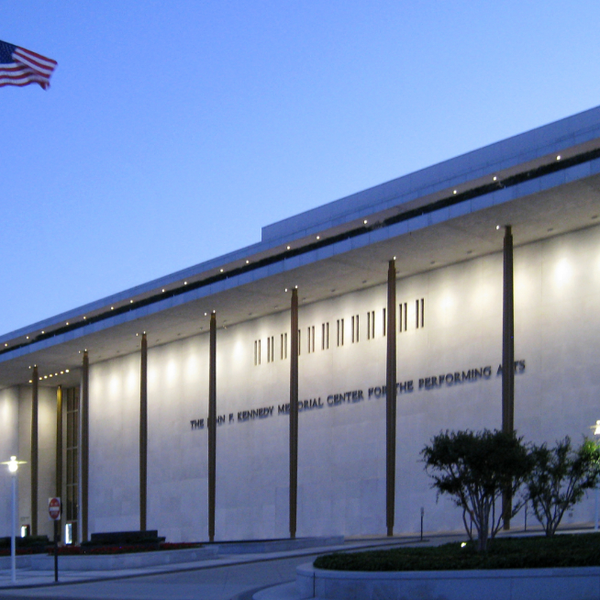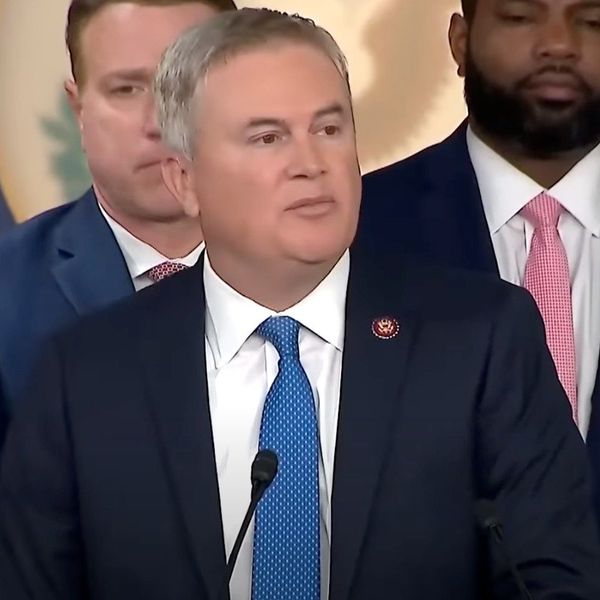
Judge Beryl Howell
With Congress completely supine and content to cede its authority to Donald Trump, it has fallen to the federal courts to be the principal check on his tyrannical, anti-constitutional ambitions.
They have stepped up admirably. However devastating the abuses of Trump's first hundred days in office, we would be in far more dire straits were it not for the wide-ranging enforcement of legal limits that Trump has regularly transgressed.
Judicial appointees of every president since Reagan, and up and down the ladder of the federal courts, have been pushing back against Trump’s tear-it-down approach to governmental power and constitutional constraint.
It's not the way it's supposed to work. It is the legislature that is designed to be the president's chief antagonist. The Framers’ view was that the legislative authority "necessarily predominates,” and a lot of the constitutional design – for example, the establishment of two branches of the legislature with different auspices – is with an eye to giving the outgunned president better odds in battle with the legislative monster.
"It is against the enterprising ambition of the legislature, that the people ought to indulge all their jealousy and exhaust all their precautions," wrote Madison in Federalist 48.
Of course, seared by the example of George III, the Framers feared executive overreach as well.
The overall solution, famously presented in Federalist 51, is that “ambition must be made to counteract ambition.”
So when a president is able to intimidate majorities in Congress so wholly that they come to identify their ambitions with his, and prefer his leadership to their own, the constitutional formula is, well, put through the meat cutter.
There is only so much that federal courts can do to fill the breach. Again, quoting Madison from Federalist 78, the judiciary “may truly be said to have neither force nor will, but merely judgment.” And it “will always be the least dangerous to the political rights of the Constitution."
It's not simply that the federal courts lack enforcement power. It's also that they are passive, forbidden from acting until someone shows up at their doorstep with a genuine injury that they can help remedy.
For that and other reasons, a lot of the high-profile court battles of the last hundred days have been procedural and preliminary: the fight frequently has been about whether a court could put an order on temporary hold so that it could consider the challenge to a Trump order more fully.
It is only in the last few days that courts have actually rendered decisions on the merits about two of the biggest and most outrageous power grabs by Trump. A Trump appointee in the Southern District of Texas held that the administration’s fairly preposterous interpretation of the Alien Enemies Act – according to which a sundry collection of alleged Tren de Aragua members in the country constitutes a "predatory incursion" by a "foreign country” – was unlawful.
The second was the 102-page tour de force from the pen of Judge Beryl Howell on Friday. This is what I want to focus on today. Howell took Trump’s vicious and tawdry attack on the Perkins Coie law firm, tore it to shreds, then fed those threads through a wood chipper.
Her analysis was so thorough, and the violations so clear, that it seems doubtful that Trump can move forward with his reprisal agenda against law firms he bears grudges against.
Of course, that’s only partial solace for Perkins Coie and WilmerHale, the law firms who courageously took Trump to court rather than knuckling under as Paul Weiss and Skadden Arps have done. That’s because prominent clients will likely still pause before hiring a firm they assess remains on the Maximum Leader’s grudge list.
The "deals” that Trump has insisted on at gunpoint with various firms violate so many separate constitutional provisions, they are like a bar exam issue essay question. At their core, they punish law firms based on the viewpoint of their advocacy—a basic restriction on government power and a constitutional third rail. The added Orwellian feature is that the conduct under scrutiny is whatever stung Trump’s fragile ego, for example, briefly employing a member of Robert Mueller's staff or having prominent Democrats for clients.
Judge Howell dedicates the vast majority of her opinion, which grants summary judgment to Perkins Coie, ending the case in the firm's favor (subject now to appeals), to an analysis of nine of the claims in the Perkins complaint, eight of which she endorses. These include different theories under the First, Fifth, and Sixth Amendments.
But the more important words in the opinion are Howell’s broader social analysis of why Trump's order not only injures Perkins Coie directly but assails core features of democratic society.
She begins this farther-reaching lesson with a deft use of an oft-misunderstood famous line from Shakespeare, “Let’s kill all the lawyers.” The reason why Dick the Butcher, the slavish follower of a would-be tyrant, proposes getting rid of lawyers is to clear the way for lawless rule by man, not law. As Justice Stevens put it, “disposing of lawyers is a step in the direction of a totalitarian form of government.” (By the way, apropos of nothing but just since Shakespeare and Justice Stevens appear in this para, here is an interesting tidbit: Stevens was an anti-Stratfordian, i.e. he believed that someone other than Shakespeare, probably Edward de Vere, wrote the Bard’s plays.)
In granting relief to Perkins Coie, the particular plaintiff before her, Howell takes the opportunity to deliver an eloquent broadside on the deeper problems with Trump’s attempts to bring individual law firms to heel. His malice threatens much more than its objects. It is also an attack on the entire legal profession. And that attack, by extension, endangers “the public interest in truth and fairness,” which the Supreme Court in Legal Services Corp. v. Velasquez emphasized depends on a vigorous adversary system.
Letting the focus out one more level, Howell argues that Trump’s executive order tramples on basic tenets of justice and liberty. The engine of our system of justice is, to quote Chief Justice John Marshall in Marbury v. Madison, “the right of every individual to claim the protection of the laws.” That implies that Trump’s vindictive mugging of one law firm casts a shadow on the core concept of equal justice under law. Howell writes that “[u]nder the Fifth Amendment’s guarantee of equal protection… settling personal vendettas by targeting a disliked business or individual for punitive government action is not a legitimate use of the powers of the U.S. government or an American President.”
Judge Howell’s emphatic opinion striking down Trump’s order singling out a single law firm illustrates how, once they are empowered to act, federal courts can play a broader teaching role. Courts can only get in on the action on behalf of individual litigants with demonstrated injuries. But once they are properly invoked, they can be the avenging angels of far-reaching or even universal social principles that the president is savaging daily.
When the Supreme Court in Brown v. Board of Education determined that “separate but equal is inherently unequal,” it was granting relief to a relatively small class of public school students. But it was articulating a principle that revolutionized American society.
It’s not a question of using a case as a springboard for a general lesson in constitutional law. It’s rather perceiving the depth of the legal transgressions and their corrosive impact to extend well beyond the parties before the court.
Trump’s strategy is to isolate and crush individual targets. When successful, the approach deflects attention from what is properly understood as a frontal attack on democracy and the rule of law. But his selection of these targets is essentially arbitrary, in the sense that the only qualification is his animus, which can be triggered for the most picayune and morally irrelevant reasons. It really could be anyone—any one of us. As the post-WWII poem from a Nazi supporter turned opponent goes, “First they came for the Jews but I was not a Jew…”
It follows, though it is too frequently overlooked, that Trump’s reprisals and shakedowns of law firms, or universities, or big media, or non-government organizations, or inspectors general, or prosecutors are broadsides against democracy—or even assaults on American decency. He rends the social fabric on a daily basis.
To my mind, that is what is most memorable about the Howell opinion. In the process of demolishing the administration’s bizarre and malevolent interpretation of the law, Howell draws lines from the plaintiff in front of her to the legal profession, the adversary system, the rule of law, and the most fundamental sense of equal justice for all.
It would be preferable, and more in accord with the constitutional design, for the people, in the form of the legislature, to stand up for those values. In a different world, that might well include actions for impeachment: Trump has used the office to enrich himself and immiserate enemies in ways condign to the conduct that twice landed him in the dock of the Senate in his first term.
But as long as that's not going to happen, and so much of the political system is in utter thrall to a madman president, it's vital to be able to look to the federal courts to explain Trump’s broader menace.
We have Judge Howell to thank for a clear-eyed and razor-sharp explanation of Trump’s betrayal of core shared principles, well beyond his unlawful singling out of Perkins Coie. Other opportunities abound: we should be entering into a period where the courts invalidate a long series of executive orders. It would well serve the American people for them to explain how Trump’s fusillade of orders is, far more than a series of individual reprisals, a concerted attack on the very core of American society and the concept of democratic rule.
Talk to you later.
Harry Litman is a former United States Attorney and the executive producer and host of the Talking Feds podcast. He has taught law at UCLA, Berkeley, and Georgetown and served as a deputy assistant attorney general in the Clinton Administration. Please consider subscribing to Talking Feds on Substack.
Reprinted with permission from Substack.
- Judge Howell Assails Trump White House Bid to Remove Her From ... ›
- Undaunted: Judge Beryl Howell holds the line ›
- Judge accuses Trump administration of trying to undermine judiciary ... ›
- Judge rips DOJ for attempting to remove her from case challenging ... ›
- Judge strikes down Trump executive order targeting Perkins Coie ... ›








